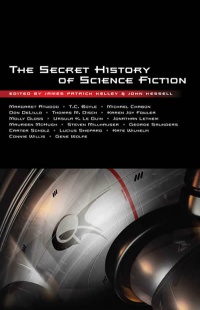 I read one of Simak’s books (Way Station) when I was a teenager, and I recall that way back then I rather liked it. On the other hand, that’s been a long time ago and I couldn’t remember anything concrete about that story or Simak’s stlye. So I decided it was time to give this classic author another shot. Since Cemetery World presented itself to me on a recent used bookstore visit, I decided that would do. Now, after reading Simak as an adult with a decent amount of SF under my belt, I can’t say that I’m too terribly impressed. There are some parts of his writing style that I like, but overall I don’t think he’s going to become one of my favorites. And that’s OK; not every author can be a favorite.
I read one of Simak’s books (Way Station) when I was a teenager, and I recall that way back then I rather liked it. On the other hand, that’s been a long time ago and I couldn’t remember anything concrete about that story or Simak’s stlye. So I decided it was time to give this classic author another shot. Since Cemetery World presented itself to me on a recent used bookstore visit, I decided that would do. Now, after reading Simak as an adult with a decent amount of SF under my belt, I can’t say that I’m too terribly impressed. There are some parts of his writing style that I like, but overall I don’t think he’s going to become one of my favorites. And that’s OK; not every author can be a favorite.
Published in 1973, this is the tale of a future Earth that has been abandoned by most of humanity, and has become a high-prestige graveyard for humans from other planets (those who can afford it anyway). When a young artist travels there to make Earth the subject of his masterpiece, he finds a lot more trouble than he bargains for. This future Earth is under the control of a corporation that gets filthy rich selling burial plots on mankind’s original homeworld, and exorbitantly-priced travel packages to those wishing to visit the cemetery world. They keep a tight control over their golden goose, not tolerating any interference with their stranglehold on Earth.
There is some good commentary here on the world of business and its less-then-exemplary practices. It’s amusing to see the local Cemetery administrator try to justify his company’s behavior. For example, he dismisses the excesses of the company’s ad men on other worlds, claiming they are too far away for the company to be held responsible for them. He then tries to excuse the company’s outrageous fees with an appeal to emotion, playing up the nobility of what they’re doing and what a good thing it is for humanity. The hypocrisy is evident at the start of the book, and only becomes more apparent later on when the company is found to be involved in theft, deception, attempted murder, bribery, and all sorts of distasteful enterprises.
The best parts of the book are Simak’s elegant descriptions of Earth and what it means to humanity, even after all these centuries as a graveyard. For example:
“You remember Mother Earth,” he told me, “all the days you’re gone, all the years in space and on the other planets. You call up in your mind exactly what it’s like. Then you land and open up the port and walk out on its surface and it hits you, suddenly, that you’ve remembered only half of it, Mother Earth is too big and beautiful to hold it all in mind.”
Simak is very good with passages like this, evoking the wonder and majesty and beauty of the natural world. And in this book he deftly depicts the deep emotional bond we have with the planet of our birth. There is a reason his style is so often referred to as “pastoral.” These passages are quite soothing and enjoyable.
However, after about the first third of the book it started going downhill for me — and not just going but wildly tumbling downhill. I can only explain by saying that the further the story went, the more absurd and juvenile it got. The events of the plot became less and less realistic, while the cast of characters became more and more ridiculous. It was just one crazy situation after another, in a sequence that was far too simplistic to be believable, and with the characters taking it all in stride without much analysis or protest. At a certain point it became too much to take, what with the ghosts, metal robot wolves, and hillbillies, among other oddities. I mean, when there are ghosts floating around, are you really reading sci-fi anymore? (There was no SFnal explanation for them; they apparently were actual ghosts.) And it was quite a shock to find that 10,000 years down the road, the Earth will be populated with honest-to-goodness hillbillies — telepathic hillbillies, at that! — and after all that time they’ve miraculously retained all the identifying cultural marks (hoedowns, square dances, moonshine, living in shacks in the mountains, and so on). Talk about your dystopias!
So to recap: some very nice descriptions of nature and our planet’s value, some good social commentary, but a clunky and simplistic plot and lots of hokey and shallow characters. On balance, I can’t say this book was a very enriching experience. Sorry Cliff, I gave you a chance, and you gave me hillbillies. I’m not sure I can forgive or forget that.














